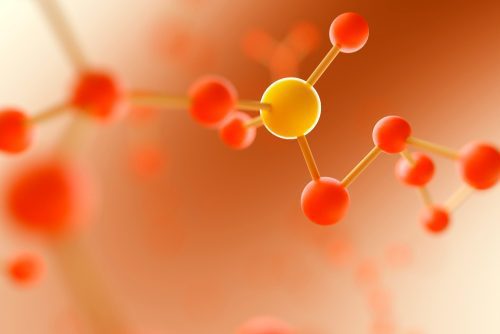
Protein Structure Prediction and Validation in Structural Biology
Deciphering Molecular Complexity: Protein Structure Prediction and Validation in Structural Biology
About Program:
Proteins are an important class of biological macromolecules present in all biological organisms. All proteins are polymers of 20 different amino acids. Proteins fold into one, or more, specific spatial conformations to perform its biological function, driven by a number of noncovalent interactions. In order to understand the functions of proteins at a molecular level, it is necessary to determine its 3D structure. Thus, protein sequence (primary and secondary) and structure prediction is an important part of analysis in proteomics. This will lead to predict and analyze the 3D structure (Structure Prediction and validation) of a protein.
Aim: To build three-dimensional protein structure models and validation from scratch. The program aims to equip participants with advanced skills in Protein Structure Prediction and Validation, fostering a deeper understanding of computational tools and methodologies in Structural Biology. This program intends to provide an arena for students, faculty and researchers in discussing the following topics as well as to provide hands on training in the following key areas in structural biology.
Program Objectives:
- Understand the fundamental concepts of protein structure and function, including the relationship between protein structure and biological activity.
- Learn the computational techniques and algorithms used for predicting protein structures, including homology modeling, ab initio modeling, and molecular dynamics simulations.
- Explore the various bioinformatics tools and databases available for protein structure prediction, sequence analysis, and structure validation.
- Gain hands-on experience in using software tools and programming languages commonly used in structural biology, such as PyMOL, MODELLER, Rosetta, and R.
- Develop proficiency in evaluating and validating predicted protein structures using experimental data, computational methods, and quality assessment metrics.
- Apply protein structure prediction techniques to address biological research questions, such as protein-ligand interactions, protein-protein interactions, and protein engineering.
- Understand the limitations and challenges associated with protein structure prediction, including accuracy, reliability, and computational efficiency.
- Critically evaluate scientific literature and research findings related to protein structure prediction and validation, and contribute to the advancement of knowledge in the field through independent research projects or collaborations.
What you will learn?
Day 1
- Protein and their interaction with ligand
- Overview of protein 3D structure file format
- Overview of small molecule databases
Tools:
- PubChem/Drug Bank/Zinc Database
- Protein Data Bank (PDB)/PDBSum
Day 2
- Comparative modeling/homology modeling
- Protein 3D structure Prediction based on homology
- Ab initio structure prediction
Tools: Modeller & Online tools
Day 3
- Structure validation
- Protein Structure validation
- Ramachandran plot
Tools: SAVES server
Fee Plan
Intended For :
- Educational Background: Applicants should typically have a background in biology, biochemistry, biophysics, or a related field. This could include undergraduate or graduate degrees.
- Experience: Some programs may require applicants to have prior coursework or research experience in structural biology, protein biochemistry, molecular modeling, or computational biology.
- Prerequisites: Depending on the level of the program, there may be specific prerequisites such as coursework in bioinformatics, molecular biology, or protein structure.
- Computer Skills: Applicants should have basic computer skills, including familiarity with software tools commonly used in structural biology and bioinformatics, such as molecular visualization software and sequence analysis tools.
- Language Proficiency: If the program is conducted in a language other than the applicant’s native language, proficiency in that language might be required.
- Motivation: Applicants should demonstrate a strong interest in structural biology, protein structure prediction, and computational methods, as well as a commitment to advancing knowledge in these areas.
- Letters of Recommendation: Some programs may require letters of recommendation from professors or supervisors who can attest to the applicant’s academic abilities, research experience, and suitability for the program.
- Statement of Purpose: Applicants may need to submit a statement of purpose or personal statement outlining their academic background, research interests, career goals, and reasons for applying to the program.
- Application Materials: Applicants may need to submit materials such as transcripts, a resume or CV, standardized test scores (if applicable), and/or writing samples, depending on the requirements of the program.
Career Supporting Skills
Program Outcomes
- In-Depth Knowledge: Gain a comprehensive understanding of protein-ligand interactions, 3D structure file formats, and small molecule databases.
- Modeling Proficiency: Acquire practical skills in comparative modeling, homology-based prediction, and ab initio structure prediction using tools like Modeller.
- Validation Expertise: Develop competence in structure validation techniques, including the interpretation of Ramachandran plots and utilization of the SAVES server.
- Practical Application: Apply theoretical knowledge through hands-on exercises, independently constructing and validating three-dimensional protein models.
- Job Readiness: Attain job-ready skills for roles in structural biology, with a certificate of completion acknowledging the acquired competencies in protein structure prediction and validation.

